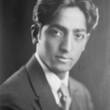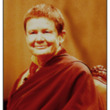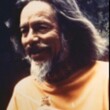Love, freedom, aloneness: the Koan of relationships
Description
More Details
9780312291624
Excerpt
Published Reviews
Booklist Review
These thoughts on love, sex, marriage, relationships, freedom, and enlightenment come from transcripts of the late teacher's lectures and question-and-answer sessions, and their casual, conversational tone makes them easy to read. Osho stresses the need for self-love, the effect of meditation on one's ability to love, the origins of jealousy, the social conditioning that shapes one's relationships, the reasons relationships often fail, and the difference between love and lust. He makes his points emphatically, often using humor to illustrate his thoughts. "I teach self-love," he says. "But remember, self-love does not mean egotistical pride, not at all. In fact it means just the opposite. The person who loves himself finds that there is no self in him. Love always melts the self--that is one of the alchemical secrets to be learned, understood, experienced." Regardless of one's feelings about Osho, who was controversial as a "sex guru," there is plenty of food for thought in his musings. --Bonnie Johnston
Publisher's Weekly Review
The first few chapters of self-styled guru Osho's spiritual insights on love, sex and meditation are infused with an idiosyncratic but reasonably mainstream flavor. As the book progresses, however, Osho's teachings veer sharply away from conventional spirituality. In a chapter entitled "It Takes a Village," Osho envisions a future in which communes replace the family, calling this "the most revolutionary step in human history." While Osho and the Osho Commune International are briefly profiled in endnotes, nowhere is it revealed that Osho was the Bhagwan Rajneesh the charismatic cult leader who fled the United States in 1987 and died in India three years later. Read in light of this knowledge, the book takes on a foreboding aspect. In view of the sexual practices at the Rajneeshi commune in Oregon, passages such as "Love always melts the self.... You love a woman, and at least in those few moments when there is real love for the woman, there is no self in you, no ego" seem rife with dangerous latencies. Also disconcerting is the knowledge that this collection has not been updated with Osho's later views, including the more conservative statements on sexuality that marked his much-scrutinized last years. Given the author's identity, readers might be tempted to dismiss these teachings as cult brainwashing and avoid them altogether, but there is much here to be taken seriously. (Aug.) (c) Copyright PWxyz, LLC. All rights reserved
Booklist Reviews
These thoughts on love, sex, marriage, relationships, freedom, and enlightenment come from transcripts of the late teacher's lectures and question-and-answer sessions, and their casual, conversational tone makes them easy to read. Osho stresses the need for self-love, the effect of meditation on one's ability to love, the origins of jealousy, the social conditioning that shapes one's relationships, the reasons relationships often fail, and the difference between love and lust. He makes his points emphatically, often using humor to illustrate his thoughts. "I teach self-love," he says. "But remember, self-love does not mean egotistical pride, not at all. In fact it means just the opposite. The person who loves himself finds that there is no self in him. Love always melts the self--that is one of the alchemical secrets to be learned, understood, experienced." Regardless of one's feelings about Osho, who was controversial as a "sex guru," there is plenty of food for thought in his musings. ((Reviewed July 2001))Copyright 2001 Booklist Reviews
Publishers Weekly Reviews
The first few chapters of self-styled guru Osho's spiritual insights on love, sex and meditation are infused with an idiosyncratic but reasonably mainstream flavor. As the book progresses, however, Osho's teachings veer sharply away from conventional spirituality. In a chapter entitled "It Takes a Village," Osho envisions a future in which communes replace the family, calling this "the most revolutionary step in human history." While Osho and the Osho Commune International are briefly profiled in endnotes, nowhere is it revealed that Osho was the Bhagwan Rajneesh the charismatic cult leader who fled the United States in 1987 and died in India three years later. Read in light of this knowledge, the book takes on a foreboding aspect. In view of the sexual practices at the Rajneeshi commune in Oregon, passages such as "Love always melts the self.... You love a woman, and at least in those few moments when there is real love for the woman, there is no self in you, no ego" seem rife with dangerous latencies. Also disconcerting is the knowledge that this collection has not been updated with Osho's later views, including the more conservative statements on sexuality that marked his much-scrutinized last years. Given the author's identity, readers might be tempted to dismiss these teachings as cult brainwashing and avoid them altogether, but there is much here to be taken seriously. (Aug.) Copyright 2001 Cahners Business Information.
































